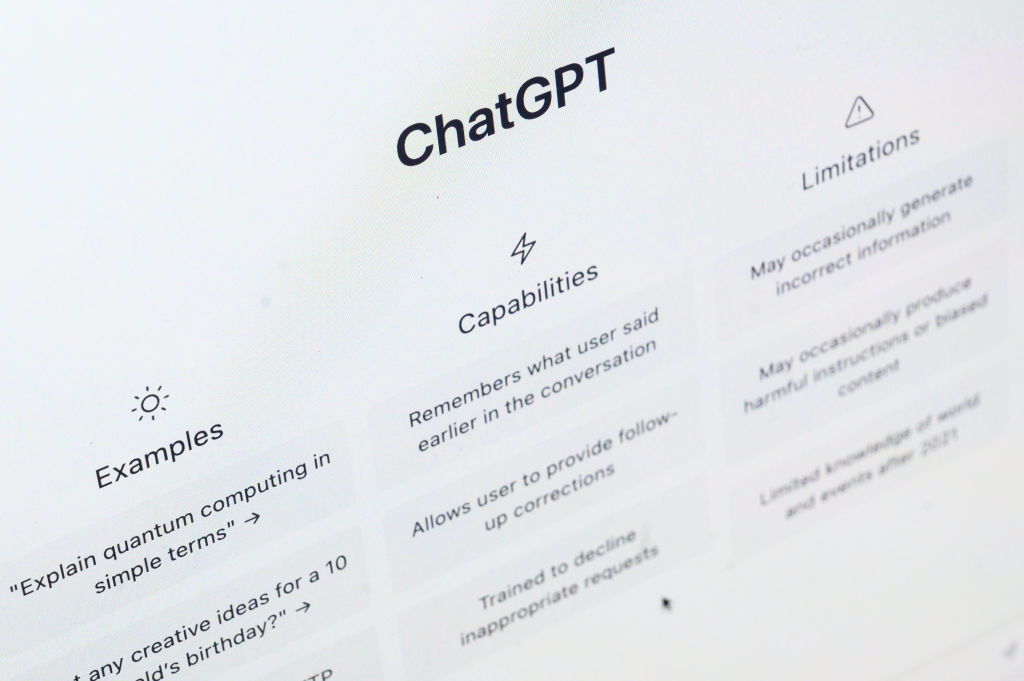The race for AI-powered search engines is a long war and ChatGPT could easily lose

Will ChatGPT mean the end of Google searches as we know them? As tech giants compete to get their version of the AI tool in pole position, all is not lost for Google, writes Paul Ormerod
The AI chatbot ChatGPT has taken the world by storm – and for once, the hyperbole is justified. Tens of millions, perhaps hundreds, of people across the world who never previously engaged with artificial intelligence are referring to the tool as if it were an old friend which they had known forever.
Naturally, such an innovation generates competitors. Meta, for example, has OPT – Open, Pretrained Transformer; Google developed LaMDA, and there are many smaller would-be rivals.
But the real game to watch is the one started by Microsoft when it announced the incorporation of ChatGPT into its search engine, Bing, and its browser, Edge.
This opens up a new, different world of internet searches. When you type in a question, you get a full text response instead of pages of links to click on.
Google’s business model is built on these links. Every time you click on one, an almost instantaneous auction takes place for the right to display ads on the page. Each ad costs virtually nothing, but billions of virtually nothings add up to a big something. In fact, they add up to a great deal of Google’s revenue.
Google have clearly been aware of this potentially mortal threat to their company for some time. They launched their own rival to ChatGPT, Bard, built into their search engine. It proved to be a fairly spectacular own goal when Bard gave a factually incorrect answer at the marketing event. No less than $170m was wiped off the company’s value.
But this is merely the opening move in what could be a long war. You would think the winner will be the company developing the better product. Eventually, consumers will be won over by quality.
History shows us this is not necessarily the case. The bitter videotape war of the late 1970s and early 1980s is a classic example. At the time, video cassette recorders (VCR) represented a major advance in technology. They were eventually supplanted completely by DVDs around the turn of the century, but in the 1980s they represented a revolutionary step forward in consumer experience.
There were two competing offers, each backed by huge companies. Sony had Betamax and another Japanese firm, Matsushita, developed VHS.
Comparisons of new technology products are never easy to make. But overall, Betamax was widely believed to be superior. It certainly seemed so to me when I bought one. Yet by the mid-1980s Betamax’s market share was below 10 per cent in most countries, and in 1988 Sony admitted defeat by adding VHS to its VCR offer.
Essentially, once VHS obtained an edge in market share, a feedback loop was created which led to its eventual complete dominance and the elimination of its rival. Retailers gave more shelf space to the better selling product. People enthused about VCRs to their friends and family, making it more likely that new purchasers would buy VHS than Betamax.
The British economist Brian Arthur was inspired to develop a formal theoretical model to explain such processes, a mathematically challenging paper called “Competing technologies, increasing returns, and lock-in by historical events”.
Standard economic theory suggests the better product will win. Arthur’s model predicts it is largely a matter of chance as to which rival gets ahead early to set up the positive feedback process in its favour.
So, despite the initial mishap, all is not lost for Google. Either way, it will be a fascinating game to watch.
